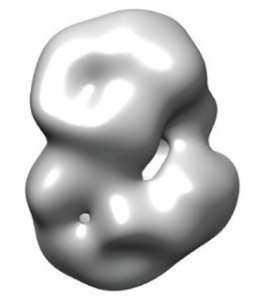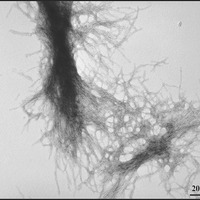Latest News
-

Unlocking the Mind’s Eye: How Huntington’s Disease Changes How We See and Process the World
For many with Huntington’s disease, recognising faces, navigating familiar places, or reading can be difficult. Scientists studied how and when HD affects how the brain processes what we see—crucial research to improve support for people with HD.
-

Ultra-rare mutations highlight the importance of the HD gene in brain development
New technology enables researchers to find ultra-rare mutations in the HD gene, distinct from the one causing HD
-

A support system gone wrong – glial cells contribute to HD symptoms
An elegant new study helps determine how much brain cells called glia matter to HD symptoms
-

Early exposure to the HD protein may cause life-long symptoms
A surprising new mouse study suggests the mutant HD gene may do some of its damage during embryonic development
-

Electron beam snaps best images yet of Huntington's disease protein
Electrons enable huntingtin protein, the cause of Huntington's disease, to be visualised at highest resolution ever
-

Planting trees together: The 2016 Huntington's Disease Society of America Convention
HDBuzz summarizes the science from an unusually large and energized @HDSA convention in Baltimore
-

Huntingtin takes a trip: harmful proteins pass between brain cells
Harmful misfolded huntingtin can travel between brain cells via messenger particles called exosomes
-

Important drug targets yielded by new genetic study of HD
A genetic study confirms that minute differences in DNA repair genes can influence the age of HD symptom onset.
-

Thinking clearly about the earliest symptoms of HD and which brain regions control them
HD reaches more brain structures than we thought: new research broadens our understanding of the earliest signs of HD
-

How NOT to write a news article about a clinical trial
A confusing story about a huntingtin lowering trial is published in the Telegraph, but cool new stuff is happening!
-

Huntington's Disease Therapeutics Conference 2016 – day 3
Stem cells and modeling Huntington's disease in our final Therapeutics Conference report
